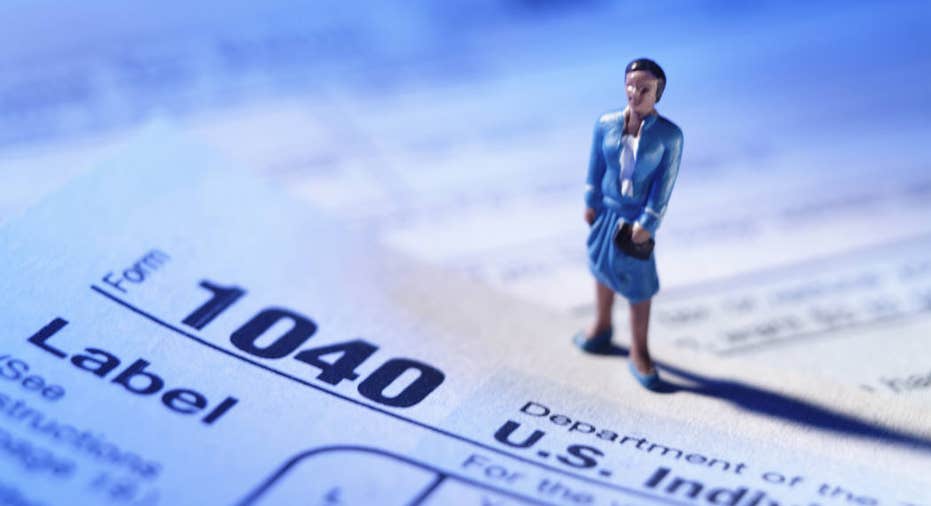Do You Need an Employer Identification Number?

When you start your business or purchase an existing business, you may or may not need an Employer Identification Number (EIN). If you are simply a sole proprietor with no employees, you can use your Social Security number to report your income and expenses on Schedule C or to submit to clients on Form W9 if you are a subcontractor who will be receiving a 1099 at year end. However, using an EIN instead of your Social Security number will reduce instances of identity theft.
You definitely need an EIN if any of the following is true:
- Your legal form is corporate or a partnership;
- You will be hiring employees;
- You are required to file Excise or Alcohol, Tobacco, and Firearms tax returns;
- You have a KEOGH plan;
- You plan to withhold taxes for 1099 payments to non-resident aliens.
Apply Online. The Internet EIN application is the easiest way to get an EIN. Once the Form SS-4 application is completed, the information is validated during the online session, and an EIN is issued immediately.
Tax Tips for the Newly Self-Employed
Apply By EIN Toll-Free Telephone Service. Taxpayers can obtain an EIN immediately by calling the Business & Specialty Tax Line at 800.829.4933 between 7:00 a.m. - 10:00 p.m. local time, Monday through Friday. An assistor takes the information, assigns the EIN and provides the number to an authorized individual over the telephone.
Note: International applicants must call (267) 941-1099 (Not a toll-free number). Make sure you have a completed SS-4 in front of you when you make the call.
Apply By FAX. Taxpayers can FAX the completed Form SS-4 (PDF) application to their state FAX number (see Where to File - Business Forms and Filing Addresses), after ensuring that the Form SS-4 contains all of the required information. If it is determined that the entity needs a new EIN, one will be assigned using the appropriate procedures for the entity type. If the taxpayer's fax number is provided, a fax will be sent back with the EIN within four (4) business days.
How to File Taxes When Your Spouse is Your Business Partner
Apply By Mail. The processing timeframe for an EIN application received by mail is four weeks. Ensure that the Form SS-4 (PDF) contains all of the required information. If it is determined that the entity needs a new EIN, one will be assigned using the appropriate procedures for the entity type and mailed to the taxpayer. Find out where to mail Form SS-4 on the "Where to File Your Taxes" (for Form SS-4) page.
If you have an existing business with an EIN, you may have to apply for a new EIN if any of the following occur:
- You change the legal form of the business
- If as a corporation, you receive a new charter from the state or you create a new corporation via a merger
- As a sole proprietor you are subject to a bankruptcy proceeding
You needn’t apply for a new EIN simply because you change the name of your business, change locations or add new locations.
If you lost or misplaced your EIN, do not apply for a new one. Check with your tax pro or banker to see if they have it. Or call the IRS at 1.800.829.4933
If the business never gets off the ground, or you close it down at some point, you should write to the IRS at: Internal Revenue Service, Cincinnati, Ohio 45999 to close the business account. In the letter state the reason you wish to close your account. If you have a copy of the EIN Assignment Notice that was issued when your number was assigned, include it. Otherwise, be sure to include the complete legal name of the entity, the EIN, and the business address. The IRS will not close the account if you have not filed all required tax returns. If, at a later date, you reopen the business the original EIN will be reactivated.
Bonnie Lee is an Enrolled Agent admitted to practice and representing taxpayers in all fifty states at all levels within the Internal Revenue Service. She is the owner of Taxpertise in Sonoma, CA and the author of Entrepreneur Press book, “Taxpertise, The Complete Book of Dirty Little Secrets and Hidden Deductions for Small Business that the IRS Doesn't Want You to Know.” Follow Bonnie Lee on Twitter at BLTaxpertise and at Facebook.



















